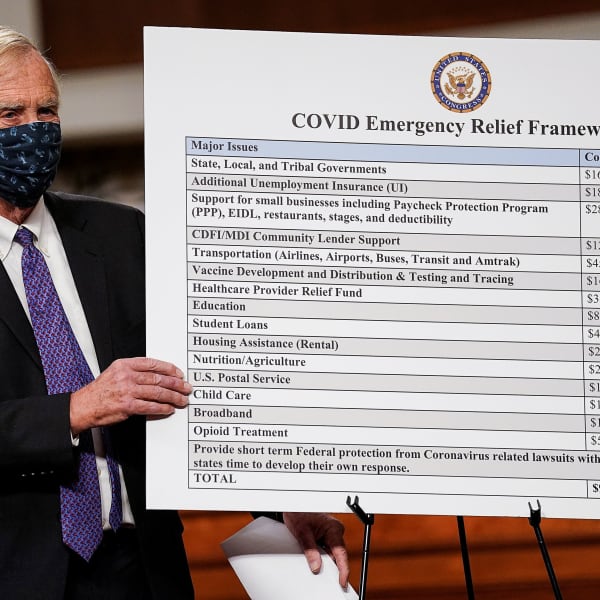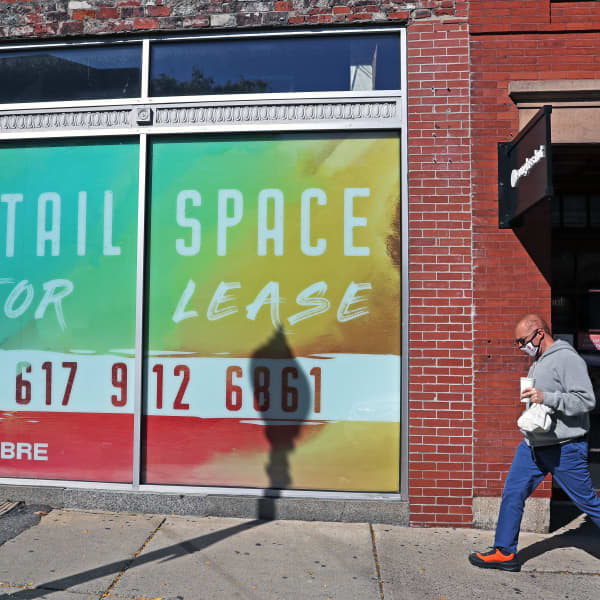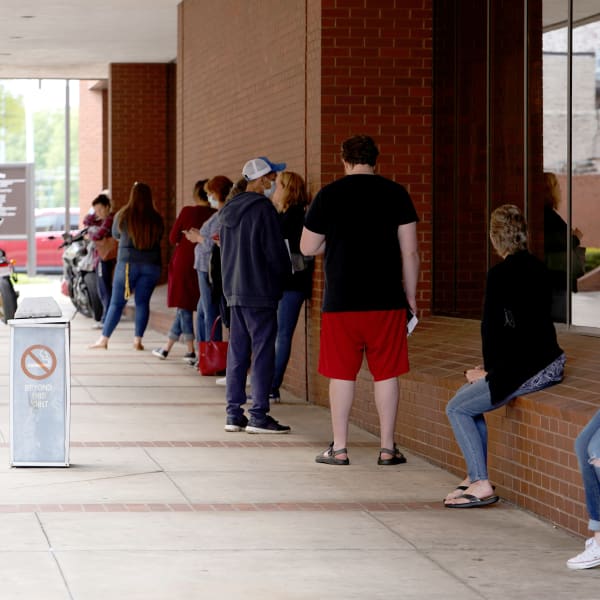President Donald Trump signed an executive order on Thursday that he claims will relieve the burden the Affordable Care Act places on business owners, but there is a large subset of U.S. businesses that have held a disapproving view of Trump's health-care policy: women-owned ones.
Women small-business owners are more concerned about the state of the health-care industry than male small-business owners, and they are more negative on Trump's health-care policy by a significant margin, according to the third-quarter CNBC/SurveyMonkey Small Business Survey.
Among the near-1,000 female small-business owners in the survey (women comprise roughly 39 percent of the small-business-owner survey group), 30 percent cited health care as the most important issue to them, the No. 1 issue for women. Male entrepreneurs cited "jobs and the economy" as the most important issue; only 21 percent of men reported that health care was most important to them.
Forty-eight percent of female business owners said they "strongly disapprove" of Trump's handling of health-care policy. Thirty-eight percent of women entrepreneurs approved of Trump's health-care policy vs. 51 percent of men. Fifty-nine percent of the women surveyed disapproved of how Trump has handled the presidency overall, one percentage point less than the 60 percent of female entrepreneurs who disapproved of Trump's approach to health- care policy. Just 41 percent of male entrepreneurs disapproved of the current administration, and 47 percent disapproved of Trump's health-care policy.

"It could be that there are gender differences where women small-business owners are more likely to be empathetic about their employees' health-care needs than male business owners," said Amelia Haviland, a professor of statistics and health policy at Carnegie Mellon University. "Certainly, differences in empathy have been well documented between genders."
As CEO of Benz Communications, Jennifer Benz sees evidence of those gender differences. Some of her clients include UMB Healthcare; the University of California's UCCare employee health plan; and Bay Healthy, a 2015 public health campaign in San Francisco.
"Women are more acutely concerned about their own health-care needs and that of their families, so it makes sense that that would extend to women business owners' concerns about their employees," Benz said in an email to CNBC. "In our work serving Fortune 500 companies, we know that reaching the female spouse is key to getting male employees and families engaged in their health."
More from the CNBC/SurveyMonkey Small Business Survey:
Main Street approval of Trump drops, even among conservatives
One significant data point within the women-owned business group is political leaning: Many more female business owners are Democrats. Only 37 percent of women business owners identify as Republicans, versus 54 percent of male business owners. Only 7 percent of women-owned businesses identified as "very conservative" on most political issues, versus 15 percent of men in the CNBC/SurveyMonkey Small Business Survey group. Women business owners were also twice as likely to say they are "liberal" on most political issues (20 percent).
Women simply care more about health care
Haviland, a statistician who studies the effects of the health-care industry on consumer health and spending, also said that women may think more about health care because they are more likely to use it.
According to 2013 surveys from the Kaiser Family Foundation, a national health-policy analysis nonprofit, fewer men than women have a regular medical practice they visit for care, and fewer men reported medical visits in the two years before the survey.
"Between having children and general OB/GYN needs, adult working women are much more likely to interact with the health-care system than men," Haviland said.
The 2010 Affordable Care Act, also called ObamaCare, enacted a mandate that business owners with more than 50 employees must provide insurance benefits to full-time employees. The order that Trump signed on Thursday seeks to loosen rules surrounding the offering of health plans by small businesses — including a way for small businesses to negotiate as a group for health coverage — as well as rules about enrollment in short-term health insurance plans. Those short-term plans are less expensive, and also less comprehensive, than Obamacare health plans.
The Trump administration also recently relaxed rules requiring businesses to offer contraceptive coverage to employees as mandates by Obamacare.
Surveys earlier this year showed that health-care reform was a hot-button issue for small-business owners, who had high expectations for Trump and his promise to "repeal and replace" the ACA on the first day of his presidency.
With a business like ours that employs workers from a large variety of backgrounds, it's extremely difficult to implement a benefits strategy that appeals to all demographics and ages.Sophia Blandco-founder of interview coaching firm Mock Interview
Trump said on Thursday that the executive order was the first step in his plan to repeal and replace the Affordable Care Act. Since taking office, the Trump administration and House Republicans have attempted to repeal and replace the ACA with several bills. The most recent effort, the Graham-Cassidy bill, would have cut Medicaid funding and reallocated it to the states so that they could focus on meeting local health-care needs. Three Republican senators — Arizona Sen. John McCain, Maine Sen. Susan Collins and Kentucky Sen. Rand Paul — opposed the bill, stalling a vote. Paul stood with the president at the signing of the health-care executive order on Thursday.
The Obamacare repeal effort doesn't divide neatly along gender lines, sometimes for less than obvious reasons. For Donna Childs, CEO of disaster-risk reduction consulting firm Prisere, the Graham-Cassidy bill would have been the right move. Childs said that the ACA creates incentives for mergers — she cited those among the major insurers, like Cigna and Anthem and Aetna and Humana. The Justice Department blocked both this year.
Childs worried that under those mergers, specific plans — such as the global coverage her company needs to work abroad — would be terminated in favor of more mass-appealing plans. Childs said via email that the ACA is a "disaster for small businesses, the engine of job growth in the U.S."
Several small business lobby groups voiced support for the executive order on Thursday, including the Small Business & Entrepreneurship Council and the National Association for the Self-Employed.
Some women-owned small businesses say adding even more options will only make health-care decisions even more complex when trying to choose a plan to cover their employees. For Sophia Bland, co-founder of interview coaching firm Mock Interview, selecting a plan for her team of just under 60 employees was an overwhelming process.
"There are such a vast number of plan options out there that it takes a tremendous amount of time to peruse them and find the right plan for our company," Bland said via email. "With a business like ours that employs workers from a large variety of backgrounds, it's extremely difficult to implement a benefits strategy that appeals to all demographics and ages."
— By Trey Strange, special to CNBC.com




